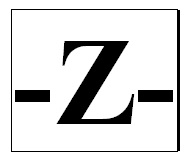
When I started memorizing my Spanish phrasebook, I picked an arbitrary number of phrases to learn each day – 10. This seemed achievable to me, with the added benefit of being able to quickly calculate and track my progress.
This seemed to work well for me for the first three months, then I took a month or so off, then learnt 50-100 words per day for two weeks, before spending a week and a half revising my deck without learning any new words.
The problem with learning a lot of words or phrases quickly with Anki is that the number of cards to review also adds up very quickly, and before you know it you have to revise two or three hundred cards per day, with occasional spikes of five hundred cards in one day. I call this problem The Wrath of Anki, and I’ve posted about it before here and here.
In his book Fast, Easy Way to Learn a Language Bill Handley states that in his opinion it is more effective to learn lots of words quickly and poorly rather a small amount of words slowly but surely.
I thought I’d try the Quickly and Poorly method with Chinese. So I’d learn 100 new phrases in one session, then revise and revise until I had the number of cards I had to review down to a manageable level, then learn 100 more. Continue reading







